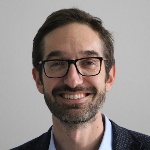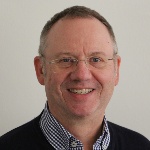Overview of all lectures and practices
In the Biomechanics course, fundamental aspects of mechanics in the human organism are taught. The focus is on the cardiovascular system and therefore includes key aspects of biofluid dynamics and the mechanics of the heart and blood vessels.
Lecturer: Prof. Dr.-Ing. G. Cattaneo
Semester: Winter semester
Language: German
ECTS credits: 3
SWS: 2
Date: Friday 11:30 - 13:00
Location: Breitscheidstraße 02A - M 2.00 (BS02AEGM 2.00)
Further information: see Campus
Content
- Fundamentals of fluid dynamics in the circulatory system
- Blood composition and flow
- Vascular compliance and pressure waves in vessels
- Mechanics of the heart and heart valves
- Blood flow regulation
- Mechanics of the lungs and ventilation
- Notes on application in medical technology
The course focuses on design, mechanics, fluid dynamics and biological interaction of different classes of implants and their navigation systems.
Lecturer: Prof. Dr.-Ing. G. Cattaneo
Semester: Winter semester
Language: English
ECTS-Credits: 6
SWS: 4
Date: Monday 15:45 - 19:00
Location: Institute of Biomedical Engineering (seminar room)
Further information: see Campus
Content
Part I: minimally invasive, catheter-based intervention:
- Imaging guided navigation
- Design of catheter systems
- Design of expandable implants
- Biofunctionalized and drug-eluting implants
- Application in cardio- and neurovascular interventions
Part II: Tissue and organ support and replacement
- Transport processes at biointerfaces
- Blood pumps and artificial heart
- Blood oxygenators for lung assist
- Cooling catheters for brain hypothermia
Students research and develop new materials, systems, procedures and methods with the aim of preventing, diagnosing and treating diseases and improving patient care, rehabilitation and the performance of healthcare systems.
Lecturer: Dr.-Ing. J. Port
Semester: Winter / Summer semester
Language: German
ECTS credits: 6
SWS: 4
Date: Friday 8:00 - 9:30
Location: Azenberg 18H - M 18.11 (AZ18H01M 18.11)
Further information: see Campus
A total of 8 experiments must be completed during the practical course. (4 SF experiments, 4 APMB experiments)
further information: M.Sc Medizintechnik
Students are able to establish a link between medicine and biology on the one hand and engineering and natural sciences on the other, as well as to explore new knowledge from the molecular level to entire organ systems and to develop new materials, systems, procedures and methods with the aim of preventing, diagnosing and treating diseases and improving patient care, rehabilitation and the efficiency of healthcare systems.
Lecturer: PD Dr.-Ing. habil. Ch. Gromoll
Semester: Winter + Summer semester
Language: German
ECTS-Credits: 3
SWS: 2
Location: Institute of Biomedical Engineering (seminar room)
Further information: see Campus
Biomedical devices undergo an extensive engineering process before becoming mature for clinical application. In all phases of research, development and certification, investigation of device performance and compatibility is performed in numerical, in vitro and in vivo models.
Lecturer: Prof. Dr.-Ing. G. Cattaneo
Semester: Summer semester
Language: English
ECTS-Credits: 6
SWS: 2
Date: Tuesday 11:30 - 13:00,
Location: Institut for Biomedical Engineering (seminar room)
Further information: see Campus
Content
- Requirements for biomedical models
- Numerical, in vitro and in vivo models
- Anatomical models based on medical imaging
- 3D-manufacturing techniques
- Model biologization
- Test protocols and reports
- Standards for preclinical device verification
Lecturer: Prof. Dr.-Ing. G. Cattaneo
Semester: Summer semester
Language: English
ECTS-Credits: 6
SWS: 2
Location: Institute of Biomedical Engineering
Further information: see Campus
Content of the practice (in teams)
- Test requirements
- Draft of the test protocol including model requirements
- Model construction: 3D imaging data segmentation
- Model manufacturing: 3D printing and molding
- Implant verification and report
Students analyze English-language specialist literature and extract the essential requirements for the implant to be developed. They will be able to dimension the implant from anatomical data sets. They will learn the method for manually manufacturing an implant from shape memory alloy. They will learn methods for realizing physical models for in vitro examination from anatomical data sets. They will be able to verify the requirements with essential tests. They will practise presenting designs and results in English and defending them in front of an audience. They will be able to transfer what they have learned to other fields of application in medical technology, especially catheter-based intervention.
Lecturer: Prof. Dr.-Ing. G. Cattaneo
Semester: Summer semester
Language: English (primarily), German
ECTS-Credits: 3
SWS: 2
Date: Wednesday 9:45 - 13:00
Location: Institute of Biomedical Engineering (seminar room)
Further information: see Campus
Content
- Reading English-language specialist literature with reference to medical issues
- Evaluation and measurement of imaging data sets
- Definition of requirements (specifications) for an implant
- Design and realization of the implant
- Carrying out in-vitro examinations: Compatibility with the microcatheter system, navigation, treatment
- Presentation and report
Students learn how to plan, control, calculate and evaluate project-critical elements.
Lecturer: Techn. Dipl.-Kffr. Katharina Bosse-Mettler
Semester: Winter- / Summer semester
Language: English
ECTS-Credits: 3
SWS: 2
Date: Friday 11:30 – 13:00
Location: Pfaffenwaldring 9, 5.Obergeschoß 5.251
Further information: see Campus
Type of course: Interdisciplinary SQ course; SQ for Medical Engineering (M.Sc.); General Elective for WASTE (M.Sc.)
Students will gain a good understanding of corporate environmental and quality management alongside core business topics. This is an increasingly essential part of corporate policy and strategy. Companies and organizations must consider the environmental impact of their activities and integrating it into quality assurance. Through obtaining theoretical knowledge and practical skills students become equipped to positively address the issues.
Lecturer: Techn. Dipl.-Kffr. Katharina Bosse-Mettler
Semester: Winter-/ Summer semester
Language: English
SWS: 1 lecture / 1 practice
Date: Thursday 17:30 - 18:30 (online); Friday 14:00 - 17:15
Location: Pfaffenwaldring 9, 5.Obergeschoß 5.251
Further information: see Campus
Type of course: Interdisciplinary SQ course
Content
Students will gain a deep understanding of corporate environmental and quality management alongside core business topics. This is an increasingly essential part of corporate policy and strategy. Companies and organisations must consider the environmental impact of their activities and integrating it into quality assurance. Through obtaining theoretical knowledge and practical skills students become equipped to positively address the issues. Subjects included are: interdependence of business and the natural environment, corporate quality- and environmental management and management systems, instruments for integrated corporate management of quality and sustainability aspects, basics of environmental economics.
The course provides the students with knowledge in applying systematic risk management throughout the full life cycle of biomedical devices. The students will be able to define the main characteristics for risk analysis. They will understand the relationship of modern risk management processes between development, production, testing, process validation and supplier management. Furthermore, they will learn to apply different statistical methods to determine sample sizes for different test scenarios such as screening, full-factor testing, verification and validation.
Lecturers: Prof. Dr.-Ing. G. Cattaneo, Thomas Ceferino Kutschenreiter
Frequency: Winter-/ Summer semester
Language: German
ECTS-Credits: 3
SWS: 2
Date: Friday 08:00 - 11:15
Location: Institute of Biomedical Engineering
Further information: see Campus
Content
- Requirements for risk analysis for biomedical products
- Risk management according EN ISO 14971
- Statistical techniques for sample size calculation
- Screening test
- Factorial-/full factorial testing (Design-of-Experiments)
- Response Surface Designs
- Practical tips for test protocols and reports

Giorgio Cattaneo
Prof. Dr.-Ing.Head of the institute, Academic dean Master Medical Engineering

Johannes Port
Dr.-Ing.Deputy Head


